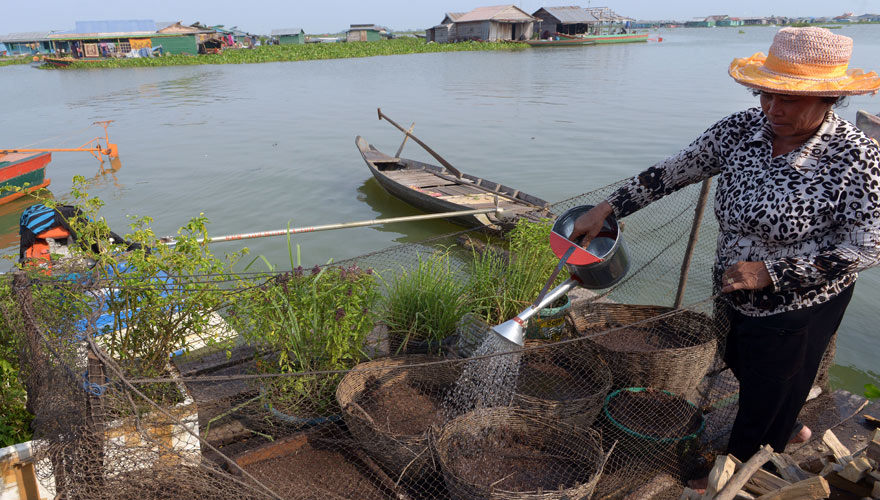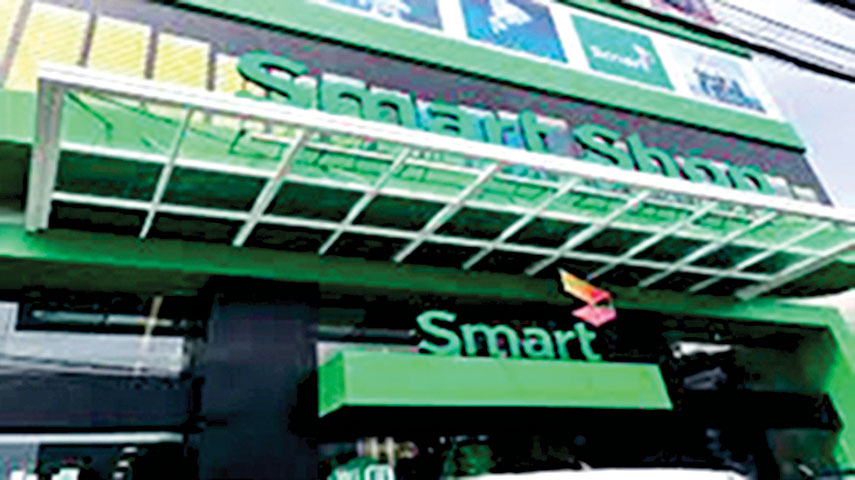The Asian Development Bank (ADB) has pledged to work to accelerate Cambodia’s competiveness and economic diversification, according to an ADB member fact sheet.
For the latest Cambodian Business news, visit Khmer Times Business
The study said the bank will help Cambodia to strengthen human capital and long-life earning, foster green, sustainable and inclusive development and improve governance.
According to the report, ADB committed $282.15 million in loans, grants and technical assistance in Cambodia in 2019.
The projects given loans and grants by the ADB include the National Solar Park Project ( $7.6 million), the Financial Sector Development Programme ($40 million), $60 million to develop human resources, $49 million for the Third Rural Water Supply and Sanitation Service Sector Development Programme and $119.2 for Irrigated Agriculture Improvements.
Country Director of ADB Cambodia Resident Mission Sunniya Durrani-Jamal told Khmer Times by email that the Irrigated Agriculture Improvement Project was just approved in December 2019 and the Ministry of Water Resources and Meteorology is currently finalising the process of recruitment of the project implementation consultants and procurement of selected civil works contract packages.
“No construction has begun yet and therefore there is no physical progress on the ground just yet,” she said.
She said the project will assist the government of Cambodia to modernise and improve the climate and disaster resilience of four irrigation systems in Battambang province, Kampong Cham, Kampong Thom and Takeo province to supply water to 43,500 hectares.
“The project will also improve farming practices for increased agricultural productivity and crop diversification. The project will contribute to poverty reduction by supporting rural poor people in the target communes of the project provinces,” she said.
“It will provide reliable water supply for agriculture, increase crop intensity and productivity. Farmers will also receive training on farming practices that are more resilient to climate change and natural hazards,” she added.
The project will also establish a national water resources data management centre (NWRDMC), a water resources information system (WRIS), and an irrigation asset management system for better water resources management, planning, operations and investment, according to Sunniya.
She said that the National Solar Park Project aims to reduce the cost of electricity through private sector investments in renewable energy.
“As of now, we are preparing the work plan to carry out the physical work or the construction process,” she said, the project will support Electricite du Cambodge (EDC) in constructing a 100 megawatt (mW) solar power park in Kampong Chhnang province and a transmission interconnection system-to- grid substation 6 (GS6) near the Phnom Penh demand centre to supply power to the national grid.

ADB has helped Cambodia achieve significant improvements in electricity distribution by financing 2,387 circuit kilometres of low-voltage transmission lines.
The bank has also helped develop a 10 mW solar farm at Bavet in Svay Rieng province and was the transaction adviser for an innovative public-private partnership to construct a new 100 mW solar power park.
As a catalyst for private investments, ADB provides financial assistance to non-sovereign projects and financial intermediaries.
Durrani-Jamal said the project will strengthen EDC’s capacity to design, construct and operate solar photovoltaic plants and solar parks, including management of environmental and social safeguard issues.
“It will also strengthen EDC’s capacity to procure solar photovoltaic generation capacity through the private sector and to adopt energy storage systems and other measures to integrate intermittent renewable energy into the national grid,” she said.
ADB has praised Cambodia over its progression in poverty reduction and human development over the past 20 years on the back of strong growth in agriculture, garment manufacturing and tourism.
According to ADB, the proportion of Cambodians living in poverty fell from 47.8 percent in 2007 to 13.5 percent in 2014.
The Bank has been supporting Cambodia since 1966 and is the country’s largest multilateral development partner, which has committed loans, grants, and technical assistance totalling $3.8 billion for Cambodia, of which $331.9 million was mobilized from co financing sources.
Cambodia achieved lower middle-income status in 2015 and aims to become an upper middle-income country by 2030.
However, ADB said although around 84 percent of the population is covered by 3G mobile phone services, many Cambodians remain vulnerable to poverty and gender-related disparities.
The country also faces challenges in diversifying its sources of growth, keeping children in school, and managing the impacts of climate change, the Bank said.
Sunniya Durrani-Jamal said that in the Cambodia Country Partnership Strategy, 2019-2023, ADB considers Agriculture as the top among the four priority programs.
She said under the strategy, 78 percent of ADB’s programmed operations are in four sectors: agriculture and natural resources 25 percent, water supply and other municipal infrastructure and services 21 percent, education 18 percent and energy 14 percent.
Cambodian government welcomes the commitment made by the ADB, saying that the pledge would help Cambodia to reach its goal of an upper middle-income country by 2030.
Veng Sakhon, the Minister of Agriculture said that with the help from ADB in agriculture sector would help boosting the country’s agriculture-based productions. He call on the Bank provide more assistant in building infrastructure.
“We are now working hard to boost the sector and we would like ADB help modernizing Cambodia’s agriculture sector to boost production chain, which is now weak,” he said adding that the development of infrastructure is the need to promote the sector.
“We currently focus more on rice only and seem ignore other agriculture-based products such as crops that more potential in local economy development,” he said, with well prepare, government expects that farmers could be able to earn $4,500 annual by 2030 and $9,000 by 2050.
Working with the Royal Government of Cambodia, ADB is financing improvements to water and urban infrastructure services along the Greater Mekong Subregion corridor and around the Tonle Sap Lake, particularly in tourism destinations and border towns, according to the report.
The support also includes communicable disease control in border areas where vulnerable groups, including migrant workers, are concentrated.
“Through technical assistance, ADB is helping Cambodia update and disseminate standard operating procedures in the areas of project management, financial management, procurement, and safeguards,” the report said, “this helps line ministries and agencies manage projects and programs more effectively, ensure compliance with social and environmental safeguards, and earmark sufficient operational and maintenance resources.”
As a catalyst for private investments, the total commitments from ADB’s own funds (in equity and direct loans) in 2019 amounted to $3.00 billion for 38 transactions in economic and social infrastructure, the finance sector, and agribusiness.
In 2019, ADB mobilized $3.28 billion of long-term co-financing and $3.69 billion of co-financing in trade finance, microfinance, and supply chain finance programs.
Total outstanding balances and commitments of non-sovereign transactions funded by ADB’s own resources stood at $13.78 billion as of 31 December 2019.




